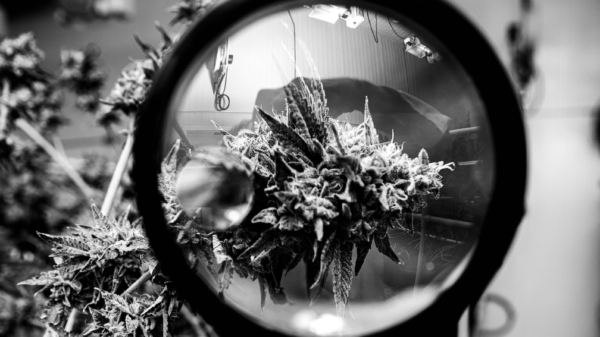Rubicon Organics Inc. (TSXV: ROMJ) (OTCQX: ROMJF) became the first Canadian cannabis company to release its environmental, social and governance (ESG) report, offering transparency and committing to improvements in related areas.
The British Columbia-based company’s first-annual report spans from Jan.1–Dec. 31, 2020, and includes data from its Delta greenhouse, workhouse and Vancouver office.
“Demonstrating leadership in environmental, social, and governance standards is of critical importance to succeed in realizing our vision and proving that we are serious about our core values of sustainability, growth, freedom, and impact,” Rubicon Organics CEO Jesse McConnell said in a statement.
As a metric, ESG reports can be taken into consideration by investors to help determine a company’s long-term profitability. The importance of ESG reporting has been amplified over the course of the pandemic as stakeholders call for more transparency, according to Chartered Professional Accountants of Canada.
Last November, the CEOs of eight leading Canadian pension plan investment managers — who manage about $1.6 trillion in assets — issued a joint statement calling on companies to provide ESG information to help with investment decision making and risk assessments.
This type of reporting could be even more important for weed firms, as their operations are particularly energy-intensive.
Read more: Canada is lagging behind on cutting cannabis pollution
As the only available ESG report from a Canadian cannabis company, its baseline data highlights Rubicon Organics’ successes and challenges while laying out a roadmap for improvement.
Rubicon Organics’ senior sustainability manager Valerie Presolly said by phone that cannabis companies can start turning their attention toward reports like this now that the “turbulence” in the industry has started to settle down, and companies are starting to see profits.
“I think it’s a sign the time may be changing,” she says.
However, there are limitations to the company’s data in its first ESG report, considering it’s the first year of data and some baselines are still being determined.
Chart via Rubicon Organics first annual ESG Report
“There’s really no benchmark to align ourselves to [in the cannabis industry], so that’s a bit challenging,” Presolly explains, adding in some areas it was simple to set targets based on scientific data and what the company wants to achieve.
It’s clear on its goals to continue gender pay equity and diversity among its employee base, which is at a reported 78 per cent.
But that wasn’t always the case and Rubicon Organics also looked to other industries as examples, such as agriculture, to set company goals.
“We were transparent about this in the report, but we’re doing this because this is a journey that we’re on, and we’re by no means saying that we’ve got it all figured out,” Presolly says.
Chart via Rubicon Organics
Some target goals, like carbon footprint reduction, may take longer to set, she adds.
Rubicon Organics brought in natural gas generators to make up for a lack of electricity powering its greenhouse. As a result, the company’s natural gas and carbon footprint spiked, though it plans to address that issue this year.
While Rubicon Organics only has waste data from its greenhouse, it’s set a target to divert 40 per cent of greenhouse waste from the landfill by 2021 through composting and recycling. By 2025, the target increases to 80-per-cent waste diversion.
Along the same lines, the firm is exploring sustainable packaging, and intends to have 100 per cent of its packaging be circular.
After testing a variety of packaging, the report found mylar bags — foil-lined zip-lock pouches — produced less waste in comparison to the glass jars its cannabis flower currently comes in. “It takes a lot of heat to melt and blow glass, and its heavier weight means higher transport emissions compared to lightweight plastic bags. In the LCA, these impacts outweighed the end-of-life impacts of recycling the glass versus putting the mylar bag in the garbage.”
Founder and CEO of GTEC Cannabis Co. (TSXV : GTEC) Norton Singhavon noted ESG issues are important in an email to Mugglehead, while commending companies showing leadership in those areas.
“At the same time, we recognize that companies can make progress on ESG issues without commissioning ESG Reports,” Singhavon said. “Indeed, GTEC has made advances in a number of these areas (e.g. energy efficiency and water conservation) without such reports. Moreover, having recently strengthened our balance sheet, and achieved positive operating cash flows, we feel we are well-positioned to make additional progress going forward.”
Update (2021-6-8): This article has been updated to include comment from GTEC CEO Norton Singhavon.
Follow Kathryn Tindale on Twitter
kathryn@mugglehead.com











